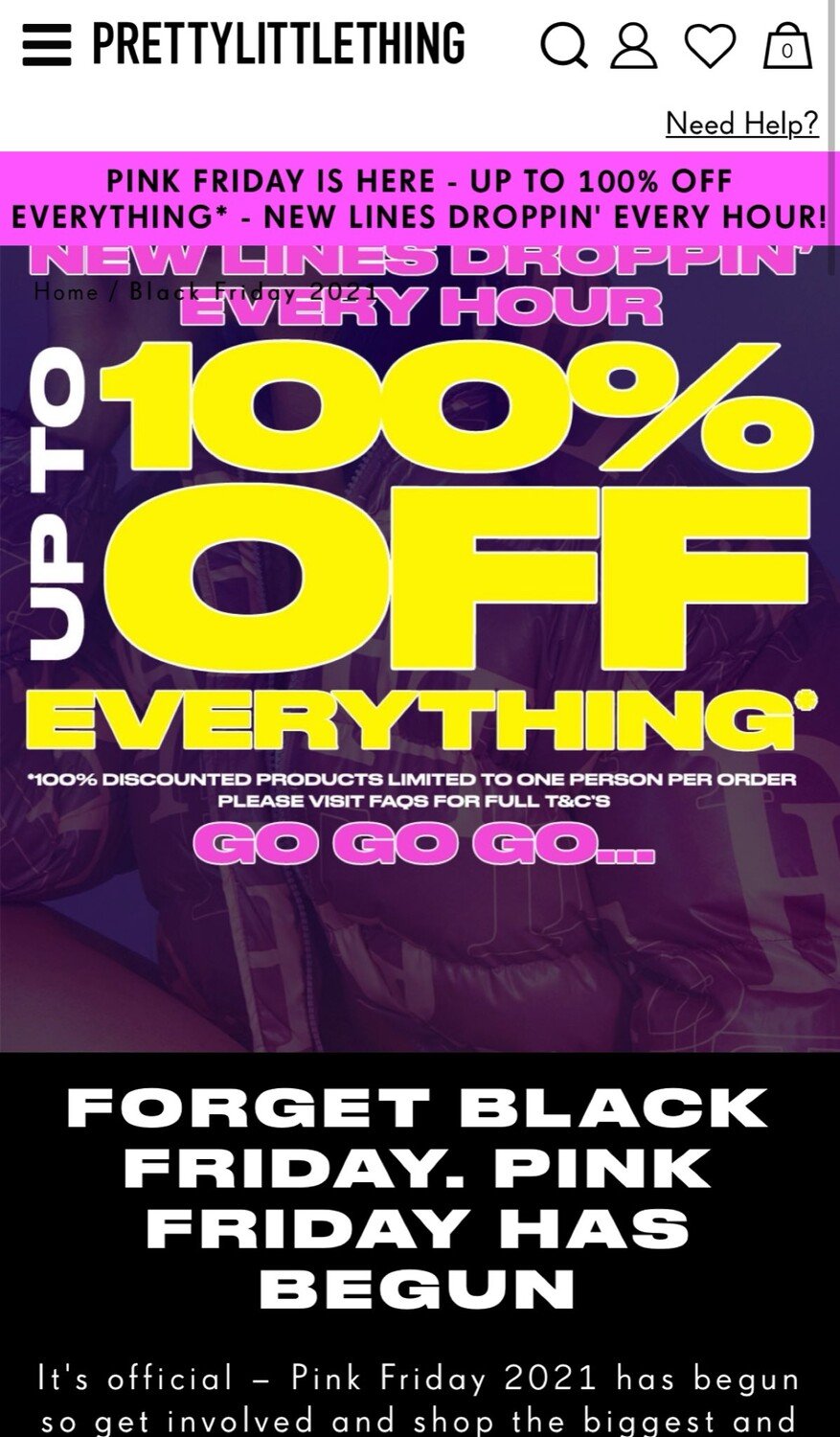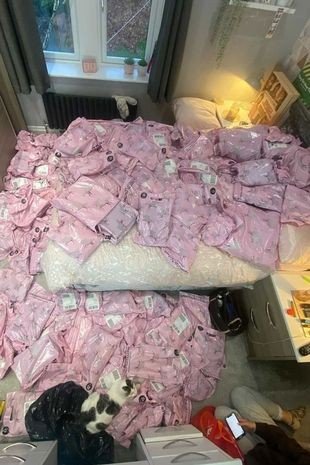Pretty Little PR Disaster?
Criticised but heavily publicised, Was Pretty Little Thing's 100% off "Pink" Friday too tacky, or just tacky enough?
This Black Friday was full of highs and lows. Many brands offered the usual “fake discounts” and many others skipped the “doorbusters” this year. Supply chain issues have meant that companies simply have less stock, and they can’t afford to sell it off for cheaper in the run-up to Christmas.Well, Pretty Little Thing didn’t just blow the doors off, they exploded the van entirely this year, offering one HUNDRED PERCENT off discounts.
Heavily criticised but heavily publicised, the question we’re asking is – is this marketing move a PR nightmare that will leave a lasting mark, or did it actually hit the right tone for their target audience?
In a world where fast fashion once reigned, we’re now starting to look a little closer at our consumption. Presided over the by the son of the fashion mogul behind BooHoo, one look at the site and its millions of pages will tell you all you need to know. Much like restaurants, when the menu is too big, the quality and provenance of what you’re buying is suspicious.
Online articles followed, lambasting Pretty Little Thing for having no respect for their garment makers, the materials used to make the clothes, and the planet as a whole
The articles made reference to textile dumping grounds in the global south and drilled home the point that if clothes are given no value by the company selling them, the people buying them will be more likely to simply throw them out and replace them as soon as the style changes, filling these landfills up higher and higher.
At a time when fast fashion is under fire for pushing over consumption and waste, this was perhaps a bit of a tone-deaf publicity stunt. And a spokesperson for Pretty Little Thing did indeed confirm that it was a publicity stunt, releasing a statement saying “Unique black Friday offers are much anticipated by our customers and a planned part of our marketing strategy”
We dug a little bit into their marketing strategy. Last year their head of digital marketing talked a big game about their sophisticated marketing strategy, which included an amazing tech-based emailing schedule, and bragged that they weren’t just going to try and be the company that shouted the loudest on the day, they were going to tailor their experience to what their customers want.
Now, they’ve either done a huge U-turn on that, because what they did was effectively screaming the loudest on the day, or they learned that that is precisely what their customers want. We’re going to bet that it’s a little bit of both.
While they were thoroughly blasted online by people with a conscience about the environment, with good arguments and damning evidence about why this deal was objectively bad, those people are not their target audience. Their target audience are teenagers, girls keeping up with changing trends on a budget, and people who need a new outfit every time they go out, and fast.
It was bold, maybe too bold, and certainly not particularly ethical, but did it have the desired effect? They had the most talked about Black Friday deal on the market, and not all of the press was negative, some of it was just press. Search Black Friday deals and it’s literally all you’ll see.
One of the many news articles on the subject show a teenage girl with her bedroom covered wall to wall in the unmistakeable pink unicorn branded Pretty Little Thing parcels. Her response to the “haters” was that they were jealous they didn’t get the deals. Proving that even if their target audience did see them being criticised online, whether they care is a different story. As long as they continue delivering fast fashion at a low price, they’re going to stick around.
So, while this marketing move was undoubtedly tacky, they’re a tacky brand, and that’s what their audience want. It worked, and it will continue to work.
The wider question we can ask is, do we as consumers deserve better? As long as we’re swayed by the best deals, the cheapest prices, and the brand shouting the loudest while turning a blind eye to the environmental cost of our purchases, maybe we don’t.




